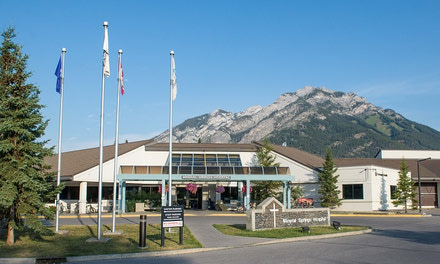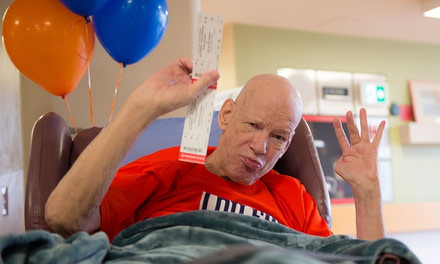Contributing to a new Mental Health Unit
When a ruptured valve caused a flood at the Misericordia Community Hospital in 2013, the Mental Health Unit turned the bad news into opportunity.
Covenant Foundation committed $40,000 for the Mental Health Unit to replace and upgrade its equipment and furniture, as part of the renovation of the unit.

“The money allowed us to replace badly out-dated furniture for the patient lounge and quiet room. We also purchased a new fridge, microwave and stove for the kitchenette, new shower chairs, a vital signs monitor, a new stretcher, dining room tables and chairs,” says Scott Aylwin, Senior Director of Operations, Mental Health, Covenant Health.
The Misericordia’s Mental Health Unit takes care of 28 patients at any one time, and has more than 300 inpatient admissions every year. Patient diagnoses run the full gamut of mental health issues ranging from depressive and anxiety disorders, to bipolar and schizophrenia spectrum disorders, personality disorders, neurodevelopmental and neurocognitive disorders, and substance-related issues. An average length of stay for a mental health patient is 23 days.
“We administer about 1,000 electroconvulsive therapy (ECT) or other neuromodulation treatments every year,” says Aylwin, who was happy to be able to purchase new equipment thanks to donor support. “We have a separate fitness room equipped with stationary bikes, weights and other exercise equipment for our therapeutic recreation program, and new carts for our neuromodulation area.”
The revamp of the unit was a four-year process, including demolition, asbestos abatement and reconstruction, but Aylwin says the difficulties and frustrations were worth it. The Mental Health treatment team had the chance to offer their input and collaborate on the design, and it shows. The finished space is open concept, with larger rooms and hallways, and a calmer atmosphere.
“In the mental health world, patients benefit from an environment that is quiet, not cramped, and less ‘institutional’ than some other units. Group attendance has increased in the new space, and patients have commented on how much they appreciate the homey feel of the unit. They like the large dining and activities area, and the quiet room for visiting family or spiritual care,” Aylwin says. “The environment plays a much more significant role here than in other areas of medicine.”





